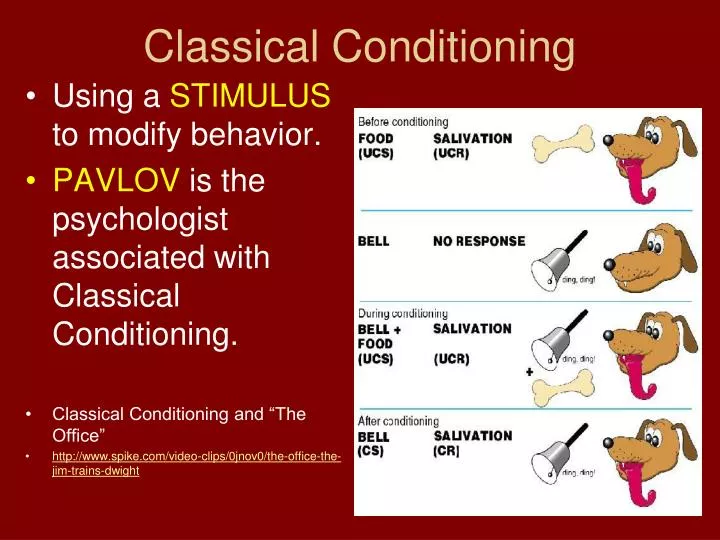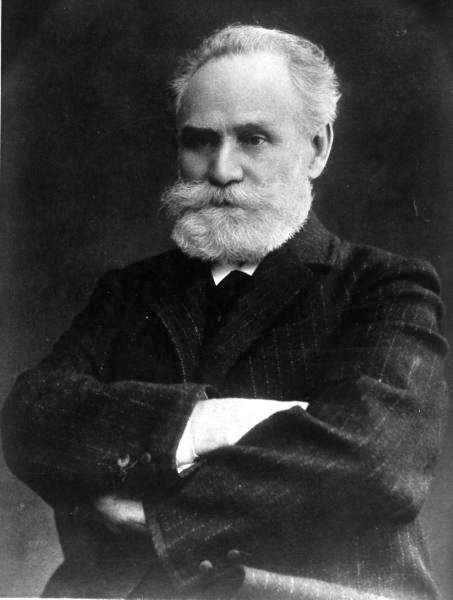
The unconditioned stimulus is usually a biologically significant stimulus such as food or pain that elicits an unconditioned response (UR) from the start. The conditioned response is the learned response to the previously neutral stimulus. Basic Principles of Classical ConditioningĬlassical conditioning is a form of learning whereby a conditioned stimulus (CS) becomes associated with an unrelated unconditioned stimulus (US) in order to produce a behavioral response known as a conditioned response (CR).


Pavlov is known for his studies in classical conditioning, which have been influential in understanding learning. To shape the behavior of an individual or animal. (1916–1997) A German psychologist who is best known for his work on intelligence and personality.Īn approach to psychology focusing on behavior, denying any independent significance for the mind and assuming that behavior is determined by the environment.Īn approach to psychotherapy that focuses on a set of methods designed to reinforce desired behaviors and eliminate undesired behaviors, without concerning itself with the psychoanalytic state of the subject. Various behavior therapies for managing fear and anxiety, such as desensitization and flooding, have been developed from Pavlov's work.By teaching dogs to associate the sound of a buzzer with being fed, Pavlov established the principles of classical conditioning.



 0 kommentar(er)
0 kommentar(er)
